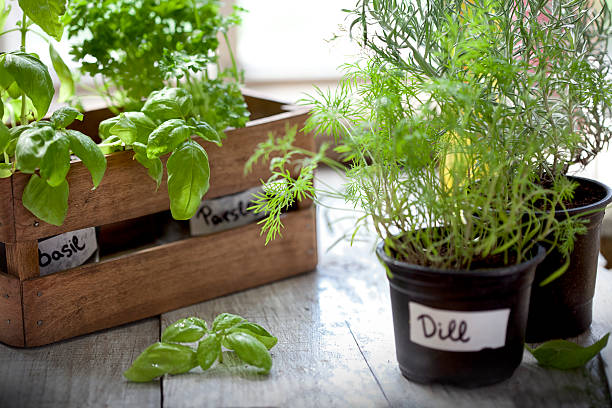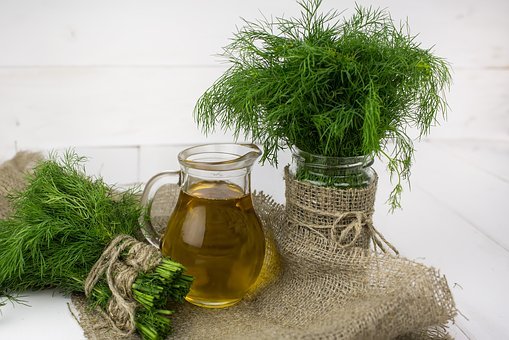
Native to the eastern Mediterranean and western Asia, dill is a popular herb worldwide, though it remains a classic ingredient in Greek, Turkish, and Persian recipes. The Spruce Eats shares the name “dill” which comes from the old Norse “Dylla,” meaning to soothe, and has historically been given to help with upset stomachs and other ailments. In ancient cultures, dill was variously believed to be a good luck charm (Rome) and a harbinger of wealth (Greece).
What Is Dill?
Dill belongs to the celery family, and not only is it used to make pickles or spices, but dill has also been used for medicinal purposes for more than 2,000 years.
Dill is also known as the Sabbath or the eye of the locust (scientific name: Anethum graveolens), which is an annual plant with a strong odor belonging to the Apiaceae family (Latin: Apiaceae), and its origins are from the Mediterranean and Russia, and its length ranges between 60 to 75 centimeters, similar to The fennel plant, but it is smaller than it, and its leaves are similar to feathers, and they are used fresh or dried in cooking and preparing tea, and its seeds may also be used as spices.
Nutritional value of dill :
Each 100g of fresh dill contains the following nutritional information, according to the USDA:
Calories: 43
Fat: 1.12
Saturated fat: 0.06
Carbohydrates: 7.02
Fiber: 2.1
Proteins: 3.46
Cholesterol: 0

Unexpected benefits of dill:
- Reducing bronchitis.
- Reducing colds.
- Cough improvement.
- Alleviation of fever.
- Reducing the risk of gallbladder disorders.
- Minimizing infection.
- Improvement of loss of appetite.
- Reducing sleep disturbances.
- Improvement of sore throat and mouth.
- Alleviation of spasms.

Uses for Dill :
Dill is a flavorful ingredient that’s easy to add to your food.
Here are some ways to add fresh dill to your meals:
- Tomato salad with dill and parsley.
- Chinese potato with chicken and dill
- Dill salad with onions
- Tahini salad with dill and hot pepper.
- Salmon steak with butter and dill sauce.
- Yogurt salad with dill.
- Quraish cheese with Nigella sativa and dill Diet.
- Chicken breast greek recipe with dill sauce

Dried dill can also be used to add flavor to dips, marinades, and potato, chicken, or tuna salads.
As for the seeds, dill seeds can be used whole or crushed and added to bread, soups, or vegetable dishes. They can also be used to make dill pickles.
How to store dill :
To store fresh dill, first spray the leaves gently with fresh water, wrap the sprigs loosely in a paper towel, and place them in a zip-top plastic bag.
Store dill in the vegetable drawer of the refrigerator for up to a week.
For longer storage, you can also freeze fresh dill by rinsing and then laying the sprigs in a single layer on a cookie sheet in the freezer.
Once frozen, transfer the sprigs to a freezer-safe bag and return them to the freezer for up to 6 months for best flavor.
Frozen dill can be used for cooking without thawing first. Dried dill and dill seeds should be stored in an airtight container in a cool, dark place for 6 months to 1 year.

In general, dill is a delicious herb and spice that can add a nutritional boost to your meal.
